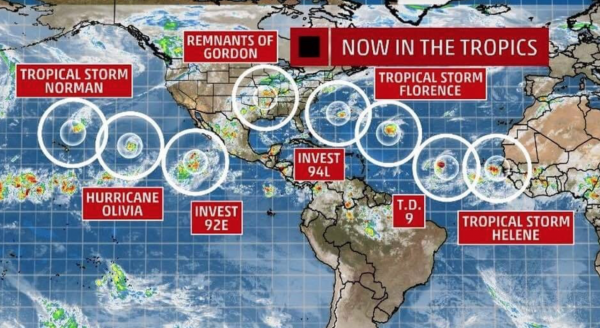
Māori language week is done and dusted for another year.
Angry white volk (who seem to have mental breakdowns if they hear one single word in Te Reo) clashed with Wellington Woke virtue signallers (who only manage to alienate everyone with their Te Reo Pronunciation Nazi routine) have finished yelling at each other for another 12 months but the following story really managed to make me shake my head in disbelief while highlighting all that is shortsighted about NZ politics & culture…
Reo rua ā mua: How Kiwis might talk in 2040
Mōrena, kei te pēhea koe?
Less than 4 per cent of NZ’s population speaks te reo Māori, so there’s a good chance you don’t understand the sentence above – but in 22 years’ time, the situation could be very different.
The Government’s draft plan to revitalise te reo Māori, the Maihi Karauna, sets an ambitious target of having a million Kiwis speaking basic te reo by 2040.
…I’m sorry what the fuck? A million Kiwis speaking basic te reo by 2040, that’s an ambitious target is it?
And where exactly will they be speaking this te reo? Underwater?
I just don’t think New Zealander’s comprehend the existential threat climate change poses to us as a civilisation and society.
The latest research from Antarctica paints a grim picture of run away climate change events that once started will see oceans rise and swallow large chunks of our coastline…
Antarctica warming could fuel disastrous sea-level rise, study finds
Temperatures not much warmer than the planet is experiencing now were sufficient to melt a major part of the East Antarctic ice sheet in Earth’s past, scientists reported Wednesday, including during one era about 125,000 years ago when sea levels were as much as 20 to 30 feet higher than they are now.“It doesn’t need to be a very big warming, as long as it stays 2 degrees warmer for a sufficient time, this is the end game,” said David Wilson, a geologist at Imperial College London and one of the authors of the new research, which was published in Nature. Scientists at institutions in Australia, New Zealand, Japan and Spain also contributed to the work.
The research concerns a little-studied region called the Wilkes Subglacial Basin, which is roughly the size of California and Texas combined and contains over 10 feet of potential sea-level rise. Fronted by three enormous glaciers named Cook, Mertz and Ninnis, the Wilkes is known to be vulnerable to fast retreat because the ice here is not standing on land and instead is rising up from a deep depression in the ocean floor.
Moreover, that depression grows deeper as you move from the current icy coastline of the Wilkes farther inland toward the South Pole, a downhill slope that could facilitate rapid ice loss.
…once Antarctica destabilises, it’s game over. This as heatwave after heatwave caused by human pollution strikes continuously…
A clear way to watch the Earth’s temperature changes over the past 137 years.
(from historic & @NASA data, via @anttilip) pic.twitter.com/1N0NRnuU5c— Chris Hadfield (@Cmdr_Hadfield) August 28, 2018
…and storms become more and more powerful and frequent…

…planning for a million Te Reo users in 2040 seems as meaningless as being carbon neutral by 2050 because our society won’t be worrying about who can speak Māori and who can’t, it will be a desperate fight for survival in an economy and culture that is scrambling to adapt.
If you think speaking Māori is going to be on the forefront of anyones thinking come 2040, I don’t think you understand what we are facing.






I would doubt that by 2030 we will be able to adapt as so many storms and flooding will have decimated our land.
So by 2040 with failed crops, lack of food supplies and polluted water supplies causing widespread illness and diseases we all will be toast Martyn.
Even in an ideal world, the notion of a million te reo speakers – whether or not of “basic” te reo (whatever that means) – by 2040 is a pipe dream.
The numbers of te reo speakers has been on a downward trajectory for many years, as the proportion of native speakers declines.
From what I understand, “basic” means greetings, farewells and other such pleasantries. Even could the populace be persuaded to do this, it won’t arrest te reo’s slide to extinction, unfortunately. Any hope of language rescue depends critically upon the nurture of native speakers. Without a critical mass of such speakers, the language will be lost in the long run.
The very best that could be expected from the use of greetings, single words and phrases in general English conversation is that, if enough people do this, such words and phrases become part of local English usage. Which won’t save te reo as it now is.
Fiddling while Rome burns.
You’re onto it, we humans, regardless of race, creed or colour are all in this together. The enforced Maorification of NZ won’t help our survival chances one bit; but there are some aspects of Maori culture that maybe helpful in developing adaptive solutions to the challenges we face.
Comments are closed.